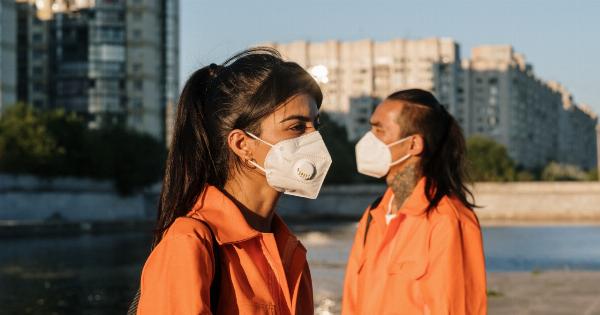Air pollution is a major global problem that has a significant impact on our health and environment. The World Health Organization (WHO) estimates that outdoor air pollution causes 4.2 million premature deaths worldwide each year.
In addition, air pollution is responsible for a host of respiratory illnesses, including asthma, chronic obstructive pulmonary disease (COPD), lung cancer, and heart disease. However, reducing air pollution can have a direct and immediate impact on our health.
What is air pollution?
Air pollution is the presence of harmful substances, including particulate matter, nitrogen oxides, sulfur oxides, ozone, and volatile organic compounds (VOCs), in the air we breathe.
These substances can be emitted from a variety of sources, including factories, power plants, vehicles, and burning fossil fuels. When we breathe in polluted air, it can cause irritation to our respiratory system and lead to serious health problems over time.
The impact of air pollution on health
Air pollution has wide-ranging effects on our health, from minor irritations to life-threatening illnesses. Short-term exposure to air pollution can cause coughing, wheezing, and shortness of breath.
Long-term exposure can lead to more serious respiratory illnesses, including COPD and lung cancer. In addition, air pollution is a major contributor to heart disease, which is the leading cause of death worldwide.
How reducing air pollution can improve health
Reducing air pollution can have a direct and immediate impact on our health. Clean air is essential for healthy lungs, and improving air quality can reduce the risk of respiratory illnesses.
In addition, reducing air pollution can lead to a reduction in heart disease, as well as other health benefits.
The role of government and policy makers
Government and policy makers play a critical role in reducing air pollution. Regulation and legislation can significantly impact the amount of pollution emitted by factories, power plants, and other sources.
Governments can also encourage the use of cleaner technologies, like electric vehicles and renewable energy, through incentives and tax breaks. In addition, governments can fund research into new technologies that can help reduce pollution.
Individual actions to reduce air pollution
Reducing air pollution doesn’t have to be solely the responsibility of governments and policy makers. Individuals can take actions to reduce their own impact on the environment and improve air quality.
This can include using public transportation instead of driving, reducing energy consumption, and supporting products and companies that prioritize sustainability and clean energy.
The benefits of investing in clean energy
Investing in clean energy has numerous benefits beyond reducing air pollution. Renewable energy sources like solar and wind power create jobs and stimulate economic growth.
In addition, clean energy sources are infinitely renewable, as opposed to finite fossil fuels, meaning they will be available for future generations to come.
The future of air pollution and health
Air pollution is a global problem that requires a global solution. The development of new technologies and government policies will be critical in reducing pollution and improving our health.
In addition, individual actions can collectively make a difference in reducing our impact on the environment. By working together, we can create a cleaner, healthier future for ourselves and future generations.
Conclusion
Air pollution has a significant impact on our health and environment, but there are steps we can take to reduce its impact.
Government regulation, individual actions, and clean energy investment can all contribute to improving air quality and reducing the risk of respiratory illnesses and heart disease. It’s time to take action and create a cleaner future for ourselves and our planet.


























